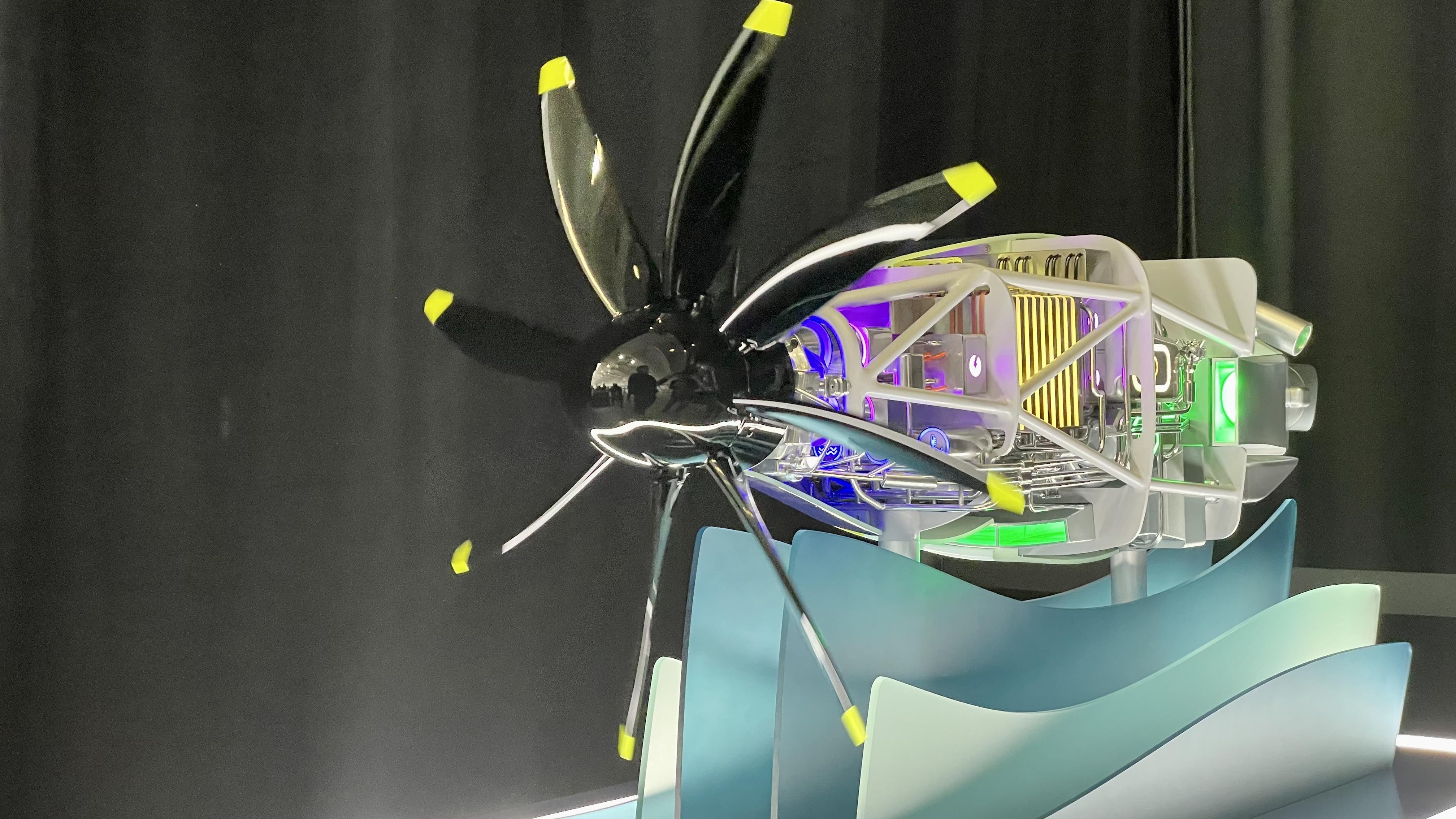
Fuel-cell engine demonstrator model at Airbus Summit 2022 in Toulouse
TOULOUSE—Airbus has revealed plans to flight-test a hydrogen fuel cell engine on its modified A380 testbed, as it already intended to do with a hydrogen-fueled turbofan.
The announcement comes 1.5 years since Airbus started focusing on burning hydrogen in gas turbine engines. An engine close to a turbofan was believed to offer a lighter-weight solution and therefore be more suitable for aviation. Airbus now wants to keep all options open, especially as a fuel cell may have a lesser climate impact overall.
The 2.1 MW engine, resembling a conventional turboprop, will be fitted on an upper-fuselage wing stub that is also being designed to test a GE Passport as part of a joint effort with CFM. The fuel cell engine test campaign is scheduled for the same period, 2026-28.
Both technologies use liquid hydrogen and are being explored in parallel, says Glenn Llewellyn, Airbus VP, zero emission aircraft. A decision will be made later, in time for entry into service by 2035, he adds.
“At scale, and if the technology targets were achieved, fuel cell engines may be able to power a 100-passenger aircraft with a range of approximately 1,000 nautical miles,” he says. “We are giving ourselves additional options that will inform our decisions on the architecture of our future ZEROe aircraft, the development of which we intend to launch in the 2027-2028 timeframe.”
A hydrogen fuel cell and associated electric motor and propeller are expected to be more efficient than burning hydrogen in a gas turbine. Other benefits include the absence of nitrogen oxides (NOx), which are suspected to be contributing to global warming, and an even lower probability of forming contrails, which are proved to contribute.
The test engine is being put together in Hamburg. It has been assessed at subsystem level, with the electric motor still being tested.
Airbus has been cooperating with fuel cell specialist ElringKlinger. In 2020, they created a joint venture dubbed Aerostack. The fuel cell in the test engine uses an arrangement that puts together cells into stacks and stacks into four so-called channels, making the layout scalable.
Before the installation on the A380, full engine evaluations will take place at Airbus’ E-Aircraft System House ground test center in Munich.
For the test engine, the Hamburg team kept subsystems segregated for better accessibility. Engineers came from the company’s space activities, for their skills in batteries, and Airbus Helicopters, for the gearbox that will link the motor and the propeller.
The biggest challenge will be weight. One should look at the full equation, factoring in the better efficiency, says Hauke Luedders, head of fuel-cell propulsion systems for zero emission aircraft.
